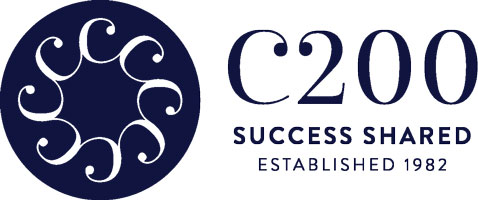
by Eva Glassman | Mar 26, 2024 | Blog, Featured
By Lisa Pollina, Corporate Executive | C200 member since 2015
From sudden trade tensions to regional conflicts, the ever-changing political landscape poses significant challenges for businesses leadership. It’s crucial for leaders to understand how to navigate these challenges effectively.
C200 member Lisa Pollina’s recent article for Forbes highlights how businesses can develop robust strategies for managing geopolitical risks while also prioritizing duty of care and stakeholder considerations.
Throughout the article, Lisa provides insights and practical guidance for business leaders and board members facing these complex issues. By exploring the intersection of leadership, geopolitics, and duty of care, this article empowers leaders with the knowledge and tools they need to steer their organizations through turbulent times successfully.
You can read the full article here.
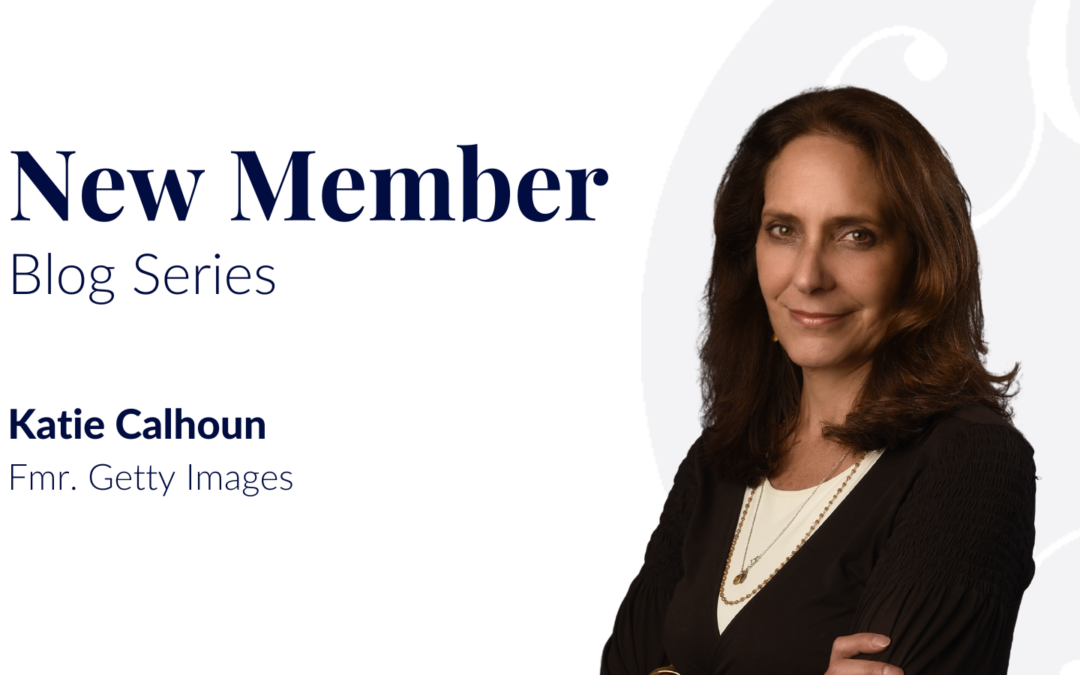
by Eva Glassman | Mar 19, 2024 | Blog, Featured
Katie Calhoun is an international sales leader with expertise in strategic partnerships and content strategy. She recently concluded a 17-year tenure at Getty Images as VP of Sales and Regional Marketing where she drove Getty’s enterprise business through phenomenal growth, elevating the brand and securing the company’s position as a market leader for visual content. She began her career in publishing as a photograph editor and writer. She has always been passionate about the power of storytelling and Diversity, Equity, and Inclusion in the workplace. A lover of art and culture, Katie enjoys visiting museums, galleries, and concerts with her family outside of work. Katie has been a member of C200 since November 2023.
Eva Glassman: You recently left your role as Vice President of Sales & Regional Marketing at Getty Images. What was that role like?
Katie Calhoun: I left Getty Images in November after more than 17 great years. By the time I left, I was managing 120 people across North, South, and Central America. I loved the company and my team—I still do—but I felt that I had accomplished what I wanted to accomplish there. My team had grown the business from a third-place player to a global leader. We had established important strategic partnerships and spearheaded a global content creation business that was contributing significantly to the bottom line; I had been part of the leadership team that successfully took the company public in July of 2022. And, importantly, I had been part of the steering committee that launched the Getty Images generative AI tool, which was really exciting and a great process to be a part of. Before Getty, I was in publishing on both the editorial and business side of that industry, so I’ve always been involved in communications and content creation with a focus on visual content.
In late 2023, I had some unique opportunities to take a break and travel with my family, so I took advantage of that as a time to make a change. Now, I’m fortunate to have a chance to do some consulting and evaluate what I want to do next in terms of a full-time role. I want it to be the right fit: a place with a strong culture that values diversity and authentic leadership and where there’s a great opportunity to drive revenue with fresh solutions, especially around digital technology, content, and culture.
EG: I want to know more about your career journey, but first I know you went to Cornell for undergrad. What did you study?
KC: I have a degree in Fine Arts with a concentration in photography, of all things—not the most common degree! But it was a really valuable experience for me. At Cornell, it was such a rigorous program around critiques. You couldn’t just create artwork in a vacuum and be done; articulating your opinions of others’ work was a big part of the classwork. By the time I graduated, I realized how energized I was by talking about other people’s work.
I’m originally from the suburbs of Chicago, but after graduating from Cornell, I was determined to live in New York City. I knew I didn’t want to pursue my own photography, and I needed to live and support myself— which can be especially challenging in New York. That’s how I got into publishing, starting out as a photo editor. I worked at a photography magazine and also did a bunch of freelance writing early on.
Eventually, I landed at the American Heritage Division of Forbes and worked my way up to General Manager. At that time—or any time—the people who went on to run the world didn’t start as photo editors, even in publishing. So, I needed to develop new skills. I was lucky because I was given so much opportunity to grow at Forbes. I was there for 10 years and became very involved in the P/L, production, consumer marketing, and editorial, but the only thing I still didn’t know much about was sales. To fill that gap, I left Forbes and joined Hearst as Sales Director.
I learned an incredible amount at Hearst from some wonderful people, but I remained really interested in photography. Then, it just so happened that a friend of a friend worked at Getty Images, and after hearing more about their work, I knew I wanted to work there. It was an opportunity to draw on both my creative and business backgrounds to have real impact in a rapidly-changing industry.
When I started at Getty, it was largely a business to support advertising. As an editorial provider at that time, we ranked behind Associated Press and Reuters. It was perfect timing to invest in visual content because everything was going digital, and the use of photos and video was exploding. I was able to come in with a fresh perspective. The business had been bogged down with administrative and transactional workflows, and we moved it into a more efficient subscription business. Through that pivot, we were able to wrap up market share and grow the business in advertising, corporate marketing, and editorial.
Today, you see Getty Images everywhere—for example, on Golden Globes night, Getty really dominated all the placement in media. I’m so proud of those results because they reflect the relationships and the business we built as a team. Getty is now such a leader in the market; when I started, some people would barely have meetings with us.
I think the connecting thread that goes through my career is storytelling. In the end, decisions should be powered by data, but they’re animated by storytelling, right? Whether you’re in editorial and working to inform or educate the public, or you’re in advertising and marketing and looking to engage consumers and drive awareness—you’re doing that through storytelling and emotional connections. Research shows it’s those emotional connections that inspire action, influence behavior, and change perceptions—that’s the power of stories.
EG: Why do you think you were able to find success in your career? What do you believe were the factors at play?
KC: First, love what you do, and then work hard; you have to raise your hand, be tenacious, and be energized by a challenge. And you absolutely have to treat everyone with respect. Throughout my career, I’ve also had people who believed in me and gave me a chance. When I was promoted at Forbes, even though I didn’t know anything about consumer marketing or general management at the time, they asked me, “Do you want to try it?”
EG: How did you hear about C200? What drew you to our organization?
KC: My sister-in-law is Beth Ward, who’s been a C200 member for a long time. She’s an amazing role model and champion of this organization, and her enthusiasm is contagious. About a year ago, Beth was one of the first people I confided in when I was thinking of making a career move away from Getty, and she encouraged me to look into joining C200.
One of the things that drew me to C200 was the strides the organization has made to address the diversity of their membership since the pandemic. At Getty, I was very involved with a number of DEI initiatives, so to see those efforts at C200 really resonated with me. I’m impressed that C200 already has great diversity in terms of industry and also geographical locations. So many other women’s organizations are really concentrated in cities like New York, L.A., or San Francisco, but C200 has so many different parts of the country and abroad represented with good quality.
C200 women have really accomplished so much, and the community is so supportive.
EG: Going up in your career, did you have any female mentors? What women are inspiring to you and why?
KC: I’ve been reading some of C200’s new member interviews and learning about other members’ negative or competitive experiences with women colleagues as they advanced in their careers. I’ve been fortunate in that I’ve never had that experience. I haven’t reported to many women in my career, but when I have, they’ve been incredibly supportive. And I have had wonderful female peers who have been trusted sources of strength.
At Getty, we’ve done multiple partnerships with organizations like LeanIn, Unilever, AARP, and GLAAD to create collections that challenge all sorts of visual stereotypes. In every one of these endeavors, it’s been the connections between strong women that cemented the partnerships and got things done—it really is the power of sisterhood! The power of the female network has always been deeply gratifying and energizing for me.
Coaching and mentoring have always been an important part of what I’ve done, cared about, and what motivates me. A lot of people think of mentoring and worry that they don’t have any time to do it or anything to offer, but you get as much from mentoring as you give.
EG: What does being a “woman in business” mean to you? How do you apply that thinking to what you do?
KC: This is somewhat of a cliche, but women bring more EQ and fresh perspectives to the table. They’re more adaptable, nimble, considerate, and not reckless. I’m proud of what all professional women have done together and the progress we’ve made so far in terms of gender equality in business leadership, and I’m utterly committed to pushing more envelopes and challenging stereotypes and current trends to get us all to a better place.
There’s still so much work to do! I recently had a conversation with someone I know about a male hire they made, and I asked them, “Were there no women? No people of color?” Anyone can continue explaining these hires away as one-offs (and, candidly, I’ve fallen into that trap myself). Change takes real intention. Old habits die hard, and the trends are slow to evolve. Fraternities can take a lot of different shapes and forms.
There is so much data that show how companies perform better when they have women representation in leadership and on their boards. Yet the progress here is painfully slow. There are still issues with the pay gap; there are profound challenges for women of color; only 2% of venture capital money is invested in women-founded, women-run businesses…! I could go on. It’s both disappointing and motivating that we still need to fight so much for representation. But I’m up for the fight!
EG: Shifting topics, what do you like to do for fun outside of work?
KC: My background is in Fine Arts, so wherever I go, I love to spend time at museums and galleries. When I recently spent time with my daughter in Rome, we had such an incredible time admiring the art and architecture there. It’s been gratifying to engage more with art in the last month or so, along with all the cultural aspects of New York City.
We’re a creative family. My husband is an author, and both my kids are artists—my son just graduated from college and is involved in arts education, and although my daughter is a psychology major, she’s also an artist. We do a ton of DIY projects as a family, which sounds crafty, but we’ve completed some great projects!
And while this isn’t exactly a leisure activity, I was involved in a lot of generative AI initiatives at Getty, and that topic really continues to interest me. I love having conversations about everything that’s going on with intellectual property and copyright, what the implications are, and how quickly that’s changing.
EG: You are clearly very passionate about women in business, mentoring, and getting more women in seats of influence. What’s your advice to women working to advance their own careers?
KC: Believe in the power of your voice. It’s easy to think, “I don’t want to rock the boat so maybe I’ll edit my feedback,” but it’s hard to be effective without authenticity. You can get to a certain point without it, but authenticity, honesty, and voicing your opinions are how you expand your influence in your organization. If your voice isn’t valued and you feel like you’re in the wrong fit or in a toxic environment, you probably are. Make a change. Always believe you have options; people make bad decisions when they feel like they’re trapped.
Be smart about where you create your allies, because you can’t listen to and be liked by everyone. Be very intentional about where you put your time and trust. You want to invest in the right allies and, in turn, be a strong ally yourself.
Be generous. If you’re generous, the world pays you back—maybe not in the ways you’re expecting, and maybe it’s not transactional, but you’ll benefit. And you’ll be paying it forward.
EG: Why C200? What are you most excited about as a new member?
KC: The size of the organization is such that you can really reach out to almost anyone. When I went to the holiday party earlier this year, I can’t tell you how many people said to me, “What can I do for you? How can I help you with that?” And they meant it. You really feel part of a supportive group. I already feel such a connection to everyone because it’s one that comes out of shared challenges.
C200 isn’t a huge organization, but considering its size, the depth of knowledge and experience is unparalleled. I can only imagine what some of the long-standing members had to experience professionally as trailblazing businesswomen in a man’s world. I just have so much respect for people who have come before me, especially from other industries where it was even harder for women to succeed. C200 represents a lot of that grit and resilience. I want to be part of a group that makes it easier for the next generations.
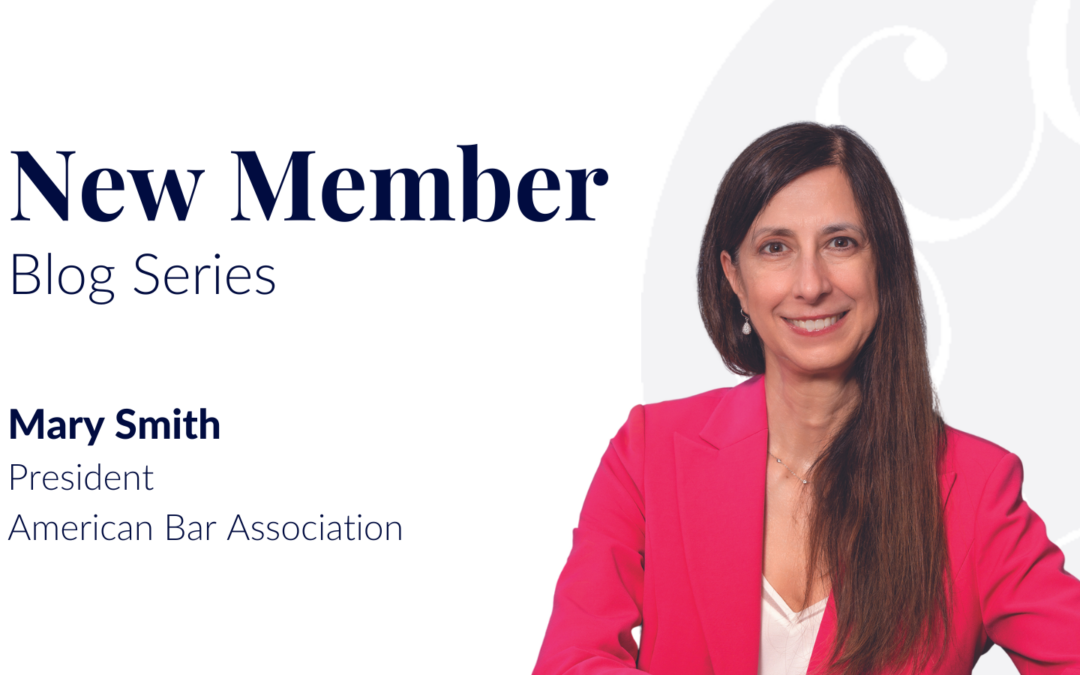
by Eva Glassman | Mar 5, 2024 | Blog, Featured
Mary Smith is Co-CEO of the Tribal Abatement Fund Trust, managing over $1 billion in settlement funds to address the opioid crisis in the United States, particularly in Native American communities. She is also President of the American Bar Association and is the first Native American woman to hold the position. Mary’s undergraduate degree was in mathematics and computer science, but she ended up with a career in public service due to her passion for helping others. Outside of work, she enjoys traveling and is inspired by meeting new people. Mary has been a member of C200 since September 2023.
Eva Glassman: Can you please describe your work? What industry do you work in?
Mary Smith: I am the president of the American Bar Association, the largest voluntary Bar Association in the world, and am the first Native American woman to hold this position. I serve as an independent director of a global biopharmaceutical company, PTC Therapeutics. I am also Vice Chair of the VENG Group, a national consulting firm that offers multidisciplinary and technologically driven approaches to problem solving. Finally, I also serve as Co-CEO of the Tribal Abatement Fund Trust, overseeing the distribution of $1.5 billion worth of opioid settlements to Native American tribes across the country.
EG: That is incredible work, and so is the rest of your career journey—you’ve worked in the White House! What I find most interesting is your educational background in technology, math, and engineering. How did you end up in law?
MS: I actually didn’t grow up wanting to be a lawyer, nor did I imagine devoting much in my career to public service. I grew up in a family where neither of my parents went to college. My dad quit high school to join the Navy during World War II. My mother was a gifted student who graduated high school when she was 16, but she did not attend college even though her three brothers did. I know I’m biased, but I think my mom was smarter than all her brothers. She didn’t go to college because it was a time when girls really didn’t do that.
My undergraduate degree was mathematics and computer science. I enjoyed all subjects, but I majored in mathematics and computer science because I knew that I would be able to have a career in that field. I worked as a systems programmer for a few years after college. The part of my job that I enjoyed the most was helping people with computer problems. I realized that I wanted to help people in broader ways, and that is when I thought about going to law school.
After working as an attorney at the US Department of Justice for a few years, I became fascinated with politics and public service, so I offered to volunteer on a presidential campaign. I sent a letter saying that I would quit my job to volunteer full time for the campaign, and I was offered a position.
I subsequently was very fortunate and honored to get a position in the White House to work on policy issues like equal pay for women, domestic violence and sexual assault, homelessness, civil rights issues, Native American issues, and consumer issues. After the White House, I worked at a Fortune 200 company in a senior role and also worked in a senior role in a gubernatorial administration in Illinois.
Later, I was offered the position of being CEO of the Indian Health Service, a $6 billion agency with more than 15,000 employees that provides healthcare to over 2 million Native Americans around the country. Part of the reason I took the position was to honor my Native American grandmother who grew up in a family of 16 children, only 10 of whom lived above the age of three due to lack of adequate access to healthcare.
EG: I love how mission-motivated your career journey has been. What do you think is the biggest factor that led to the success of your career and having these really amazing and impactful roles?
MS: I didn’t have a grand plan for how I wanted things to turn out. I had some plans, but I think it was being open to unexpected opportunities and seizing upon them that got me to where I am. I wasn’t afraid to stretch myself and feel uncomfortable in a new role. Wherever I was working, I continually tried to make a difference to help people and further the mission of the organization.
EG: I really appreciate the strong thread through all your experiences: your passion for helping people, which stretches all the way back to your job in computer science. Every member of C200 shows this passion because they’re part of an organization where helping people—women in business in particular—is the bottom line.
Speaking of C200, how did you get involved? How did you hear about C200 and what drew you to the organization?
MS: I knew some amazing women from Chicago like Christie Hefner and Donna Zarcone who are members of C200. I was drawn to C200 because of the fabulous women who are involved in the organization.
Before I was a member, I attended the Annual Conference in Chicago in 2022, including one of the dinners with a great group of women. It was a wonderful evening because we had honest and genuine conversations about work, family, the pandemic, and relationships.
Around the same time, which was after I left the Indian Health Service, I was beginning my board journey in earnest. During this time, I met two people who later became my nominators to C200, Joan Steele and Jan Babiak. They helped me tremendously with my board journey.
My experience at the 2022 Conference and working with Joan and Jan on my board journey showed me the power of the C200 community.
EG: Because C200 is about women helping women, it’s in part about mentorship. I was wondering about your own mentorship experiences going up in your career, particularly with other women. What women are inspiring to you and why?
MS: I have had many female mentors who helped me in all stages of my career. One of them was and is Judge Ilana Diamond Rovner for whom I interned during my first summer of law school. We’ve stayed in touch throughout my legal career, and she’s always been very supportive.
Another person who has been an inspiration and mentor to me was Wilma Mankiller, who was the first Native American woman to be principal chief of the Cherokee Nation. She led an amazing life and made lasting contributions to the Cherokee Nation. She knew the power of making the impossible possible.
EG: In your experience, what does it mean to be a woman in your field? How does that affect the way you go about your professional life, if at all?
MS: Part of being a woman in business means bringing up people behind you, because no one ever gets to where they are by themselves.
EG: How do you enjoy spending your time outside of work?
MS: I enjoy traveling. I currently am planning to go to Japan with some friends, and I am looking forward to having sushi at the docks and enjoying Japanese culture. I also really want to go to Easter Island someday to see the Moai—maybe that’s my next trip after Japan.
The other thing I like to do for fun is just meet new people. Even during the pandemic when people weren’t going out, I was able to meet a lot of people virtually. In fact, that’s when I met Jan Babiak, through a webinar.
EG: What is your advice to aspiring female business leaders as they work to advance their own careers?
MS: Stay true to and believe in yourself. It’s more important to listen than to talk, but you really have to listen with active listening.
In my experience, one of the hardest things to do is differentiate between criticism that’s valid and criticism that you can ignore. It’s easy to get bogged down by people who criticize what you’re doing, so it’s important to know when to stay focused on meeting your goals and when to be honest with yourself and say, “You know what? That is really valid, and I need to work to overcome that.”
EG: Why C200? What are you most excited about now that you’re a member? In your experience so far, what does being a member of C200 mean to you?
MS: To me, being a part of C200 is a unique mix of continuous learning and a sense of community. At its core, C200 is about women helping women.
Through C200, I have made some connections with some incredible women who I otherwise would never have met. I think the older we get, it’s harder to make new friends, but C200 instantly gives you an opportunity to connect with people who have lived interesting lives and who are really making a difference.
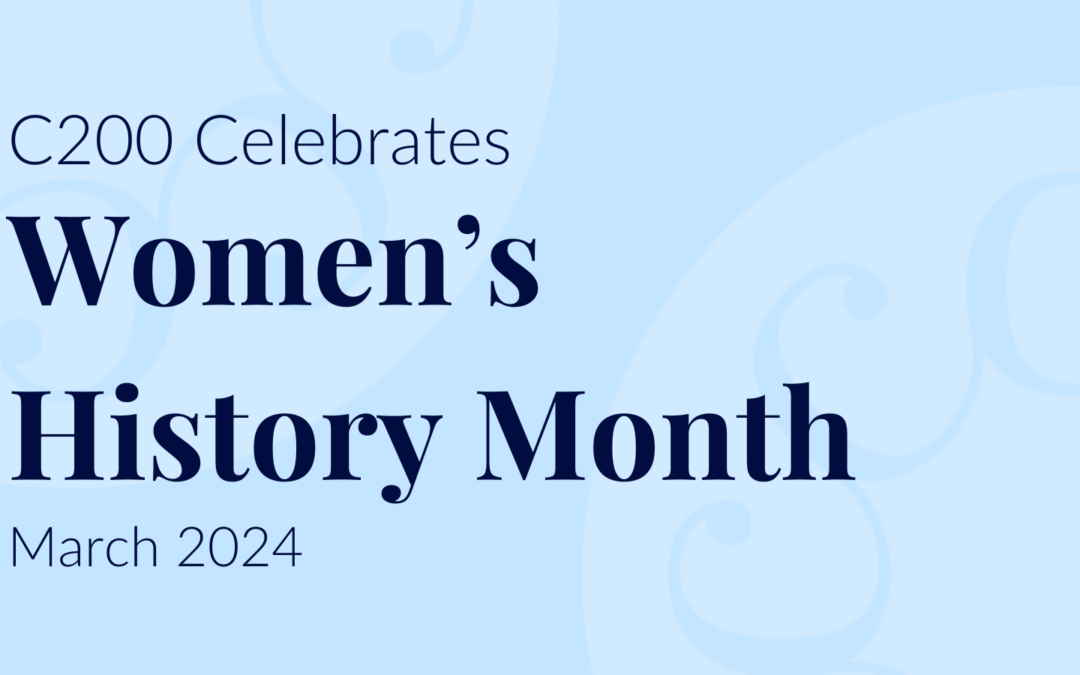
by Eva Glassman | Mar 1, 2024 | Blog, Featured
C200 celebrates women’s history every day of the year, because our organization was founded by groundbreaking women, for groundbreaking women. Every day, our members continue to make history for women in business through their power and influence at the highest heights of success.
Women’s History Month isn’t just about looking into the past. To us, it’s about profoundly impacting and celebrating the advancement of women worldwide by changing the face of business, one woman at a time. Together, we can create a more inclusive and diverse business landscape through inspiring, educating, supporting, and advancing current and future women entrepreneurs and corporate, profit-center leaders.
The numbers don’t lie. Learn more about the statistics that represent the reality of women in business, particularly at the leadership level, and how we can work toward a more equitable working world.
Below is a non-exhaustive list of resources you can utilize to educate yourself about the obstacles all women in business face and how you can advance women in your own life:
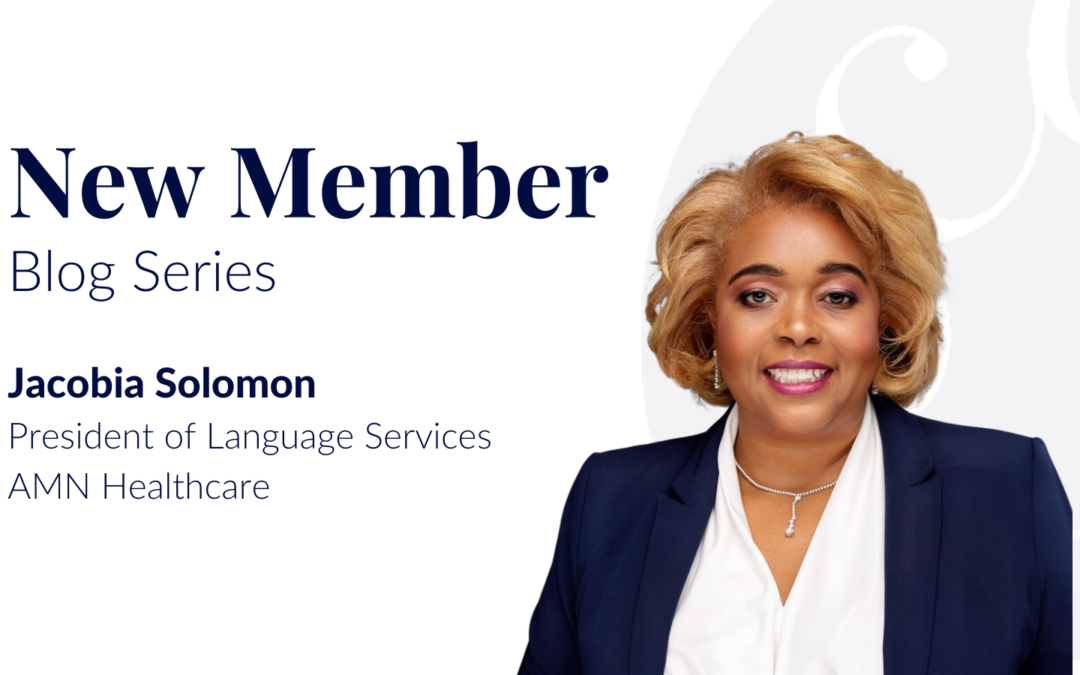
by Eva Glassman | Feb 19, 2024 | Blog, Featured
Jacobia Solomon is the President of Language Services at AMN Healthcare in a division responsible for providing multicultural interpretation and translation services in support of the healthcare journey, specifically for Limited English Proficient and Deaf and Hard of Hearing patients. With an educational background in engineering management, this is Jacobia’s first position in the healthcare industry after a 10+ year career leading engineering organizations. Outside of work, Jacobia loves to spend time with her husband, two sons, and mother; visit comedy clubs; swim; and, as a self-described “adrenaline junkie,” ride fast rollercoasters and cars. Jacobia has been a member of C200 since July 2023.
Eva Glassman: You are the President of Language Services at AMN Healthcare. What’s that like?
Jacobia Solomon: AMN Language Services is a division of AMN Healthcare and the largest provider of interpretation services exclusively supporting the healthcare market. We offer creative solutions that improve communication with a goal to yield better healthcare results within culturally- and linguistically-diverse communities.
The Limited English Proficiency (LEP) and Deaf or Hard of Hearing communities make up about 8.6% of the US population, which is about 27 million individuals that require language services. In 2023, we delivered 271 million minutes and supported 18 million patient encounters. We support the patient through the entire healthcare journey, collaborating with both providers and payers to achieve the ultimate goal of improving healthcare outcomes.
Enabling access and communication is important work when you think about the patient experience and health equity; the number one key determinant of health is access to information, but we often fail to reach the patients that are most at risk. We are in the business of telling engaging, insightful stories. The story we want to tell here is that patients and caregivers deserve the right to understand information regarding the screening, diagnosis of their ailment, the treatment strategy, and the anticipated outcome—which is sometimes life-or-death. Language access is foundational for equity.
EG: What is your day to day like?
JS: Internally, I make sure that we have a clear definition of our vision, and more importantly, how we are working to get there. A big focus for us is ensuring a clear path to value for clients and working with our healthcare partners to improve reliability, efficiency, and generating revenue.
We also focus on expecting future changes, because the healthcare landscape is constantly shifting, which means the needs of our clients and patients are shifting, too. While I am running the business now, I’m also trying to run the business five to ten years from now. Another big focus for us is how we will safely and responsibly use technology advancements such as AI in our business to improve access while aiding clinicians and bring joy back to healthcare.
My team is made up of great leaders who work well at the client experience and executing our strategy, all while adjusting as the landscape for our clients and competitors changes.
EG: I heard that your educational background is in engineering. So, how did you end up in healthcare?
JS: My current role is my first job in healthcare, so I have been in the industry for about a year and a half! I’m a mechanical engineer by trade. My path was partially planned, but I always thought methodically about the skillsets and experiences that I needed to be a great leader.
As a new graduate in engineering, I wasn’t sure where to start my career, so I joined Ford Motor Company’s college graduate program where I rotated through the company and got the chance to figure out what I was good at. I enjoyed my work at Ford and eventually started thinking about how I could grow and become a leader there. Ford supported me in getting my master’s in engineering management, which strengthened my ability to lead technical teams while aligning with business as a whole to ensure a greater impact.
I always thought I could still be who I wanted to be in the workplace, but just when I thought I could do it all, I quickly learned that was not the case. After about 10 years at Ford, they decided to close the facility in Michigan, where I was starting my family with my husband. I needed a support system and had nobody in Michigan, so we moved to Georgia where more of my family lived and could help us raise my kids, especially during the times my husband was deployed in the Army.
While I felt like I was a strong leader, I wanted to understand more about the business world from within a company. The opportunity to join Newell Rubbermaid came up, specifically a role in the Program Management Office. I got to learn other parts of the organization and started thinking about decision-making differently; for example, I started considering beyond the corporate landscape and into the global one, since some of my projects had a global scope.
I left Newell for similar reasons to Ford and pivoted to a smaller company called Mimeo as VP of Engineering. Because it was such a small company, I worked directly with the CEO and oversaw engineering—both product and manufacturing—supply chain, and shipping. I was three-fourths owner of the company and loved having that responsibility.
After Mimeo, I landed at Manitowoc in Texas, where I live today. I was interested in going back to a bigger company to spread my wings more and have a greater leadership scope. It’s funny—I had never been in construction, but I loved the experience of putting on my hardhat and boots and going to the site to see the realization of designs.
Eventually, Manitowoc split into smaller companies, which is why I left and landed at Siemens. They invested in me to get my executive MBA and made me CEO of Siemens Logistics Canada, which I did for two years. I worked the role from Texas because I had just started school and was flying to and from Canada every other week. My experience as CEO of Canada gave me a lot of confidence. I left Siemens because the company went through M&A restructuring, and I realized I didn’t want to be away from my family any longer.
This is when AMN called about my current role; I said, “Are you sure you’re calling the right person? You know I’ve never been in healthcare, right?” [laughs] They have been so supportive and great at giving me the space as President to lead, and they trust that I can deliver. When I think about a bullseye and what hits, this is where my passion and purpose are completely aligned.
Something I learned from my career experience is, as much as we like to think every company or industry is different, you will find more similarities between them and more transferable skills than you think.
EG: Let’s talk a bit about C200! How did you get involved? What drew you to C200?
JS: I found Stephanie Chung on Leadercast and loved her delivery. She lives in Texas like me, so I reached out to her. I said I was interested in connecting with women in Texas who are in similar situations, because the higher you get in business as a woman, especially as a woman of color, the lonelier it is. Sometimes, you just want to walk into a room and look at a person and communicate without any words. That is when Stephanie told me about C200—and the rest is history!
Last October, I went to the C200 Annual Conference in San Diego, and it was exhilarating meeting one powerhouse woman after another. It also made me do a personal inventory of my own accomplishments and feel proud to be among equals and inspired by how they can help me continue to grow. I kept thinking to myself, “If they’ve done it, I shouldn’t be so scared!” and, “They did that? I’ll do it now!”
Now, I am part of C200’s Financial and Investment Committee, which I’m really enjoying because I get to strengthen my relationship and connection to the organization by seeing the way things work and move within it.
EG: Have you had any female mentors throughout your career? What women are inspiring to you?
JS: I didn’t have many female mentors when I first started out, but it was something I sought outside of my workplace. I’ve always joined professional women work groups to learn from others. Early in your career, you think you can conquer the world, but eventually you look around and realize not enough conquering has happened in terms of women leadership.
As I matured in my career, it was important to me that I created not just mentorships, but what I call my “trust circle” of people who will hold up the mirror and tell me the truth (with love!). In that circle of trust, people play different roles, like mentor, sponsor, or supporter. I had both men and women in my circle because it was important for me to have both perspectives, especially since my male counterparts were the ones I was most likely trying to persuade or influence. I believe men and women communicate differently, so I thought it would benefit me to learn from both.
EG: I read that you have a philosophy that goes, “Call others into leadership with you. As you climb, it’s important to lift others with you.” How on theme for C200! How does being a woman in business impact the way you work? What does it mean to you?
JS: Being a woman in business is empowering. It’s all about what you can do to make your space much better than how you inherited it. Women have a natural affinity to go into a place and make it somewhere others want to be. I love seeing women in business because it sparks a feminine creativity in a masculine atmosphere. I think that balance of the feminine and masculine is interesting and exciting from a creative and innovative standpoint.
Women are natural problem solvers because of how we show up in life and positions not asked for; we can make something out of nothing. We’re envelope-pushers; we’ll continue to do it, even if it’s exhausting, because we understand the investment needed to get the result.
When I was younger in my career, I felt as though I always had something to prove; I don’t feel that way at all now. I know now that if there’s no space for me at the table, then I’ll build my own table—I don’t need to be invited. I love the saying, “It’s not about changing who you are, but where you are.” There are many times when you may not be valued, but that’s okay! It’s okay to go somewhere else where you are better valued—I think it’s important for women in business to understand that. When you begin to understand who you are, your worth, and your power, you can have a major impact.
EG: That leads me to my next question, which is: What is your advice to aspiring female business leaders to advance their own careers?
JS: It’s okay to have a career plan, but it’s also okay if that plan doesn’t work out. For me, what worked out was even better than my initial plan. Flexibility is important, because there are certain things about you that you may not give much importance, but someone else may see those things differently in you and give you an opportunity because of it. You don’t want to be clueless about those instances.
Move fearlessly—not without it, but in spite of it. Be courageous in what you do, who you are, and why you do it. Know that change is constant but be courageous in asking for what you want. We don’t ask for what we need all the time because we’re afraid of “No,” but it’s not going to kill us—it just means we didn’t ask the right person, the right way, or at the right time. Maybe it’s because I’m an only child, but “No” doesn’t deter me; it actually drives me!
If I could tell my younger self anything, it would be to protect and honor who you are as you would your loved ones. When you’re younger, it’s easier to take a risk on something new. We have these “guardrails,” real or perceived, that we’re always supposed to stay within and do what’s “right.” Valuing who you are as an individual and your impact when you walk into a room—it means something.
In a society where there is a significant focus on improving your weaknesses, it is equally crucial to handle and capitalize on your strengths. Occasionally, the qualities you excel in can be seen as drawbacks by others in terms of how they perceive and work with you. Moreover, the most intelligent individuals are aware of which flaws to improve upon themselves and which ones to delegate to others. At times, there can be particular aspects that will never become your strong points, and that is perfectly fine! It is advantageous to discover this information earlier and seek individuals whom you can rely on and who excel in those areas more than you do. It is important to invest effort in improving specific weaknesses, but it is also wise to delegate certain other weaknesses to external sources.
EG: Outside of work, what do you like to do for fun?
JS: I love spending time with my husband, two sons, and my mom who’s with us. I like old-school video games like Pac-Man, and I love to read. I love to laugh, so I go to comedy clubs a lot.
I’m a total adrenaline junkie; I love doing really adventurous, silly things that I’m a little scared of inside but do anyway. I love rollercoasters—I’ll go on every ride with you at the theme park. It’s one of my goals this year to skydive, and I’ve also signed up to learn how to be a pilot.
I also love fast cars; while the car definitely has to look good, I’m a horsepower and torque girl—it has to go fast! Even when my kids were little and I had a bigger car, it still had the horsepower and torque I wanted.
I’m also an avid swimmer and try to do that as much as I can. I used to be on a swim team, and I’ve even won a couple of state titles for Florida! Swimming has always been something I’ve really enjoyed; it calms my spirit.
EG: Why C200?
JS: For me, C200 stands for connection, aspiration, and sisterhood. I don’t know if I would have met the amazing women of C200 on my own. It’s a gathering of like-minded individuals that can feed into me as I can pour into them. I’m always looking for authentic and genuine relationships with people that are both similar to and different from me. There are probably things I wouldn’t know or consider if I didn’t have my C200 sisters to learn from.
I envision C200 and my fellow sisters as a multitude of beacons. We’re there to inspire, but also to align and strengthen the “beacons” in all of us into something bigger and brighter. Everyone has their own path, and C200 illuminates all our paths by reminding us that nobody truly does it alone.
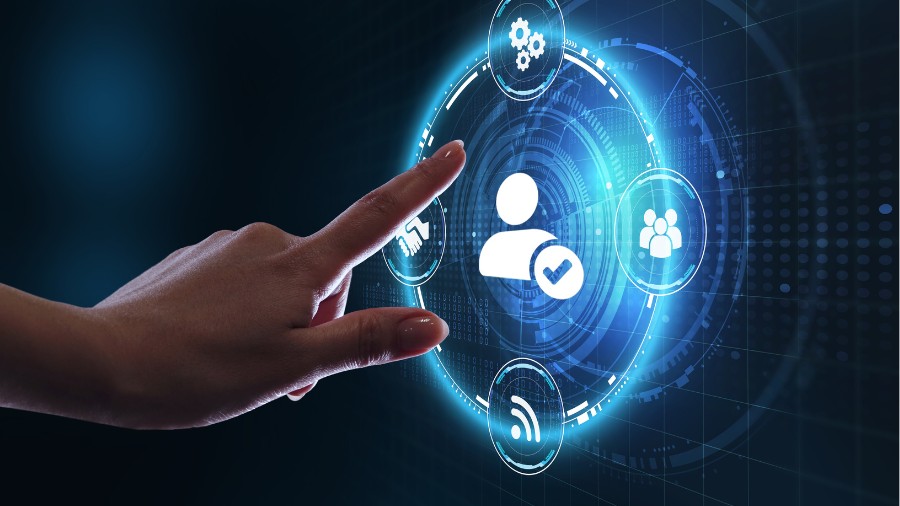
by Eva Glassman | Feb 13, 2024 | Blog, Featured
By Sophia Velastegui, Chief Product Officer, Aptiv | C200 member since 2023
The advent of AI requires a shift in how organizations structure their workforce and cultivate their culture. The future of work is not just about incorporating new technologies, but rethinking how teams collaborate, innovate, and adapt.
In this Forbes article, C200 member Sophia Velastegui provides insights on navigating the impact of AI through a holistic approach that integrates cultural adaptation, strategic planning, and a nuanced understanding of how technology can collaborate with human talent to drive innovation and success.
By building a workforce equipped to handle the complexities of AI, organizations position themselves for successful implementation and optimization of AI technologies, ensuring they remain competitive in an increasingly AI-driven business landscape.
You can read the full article here.

